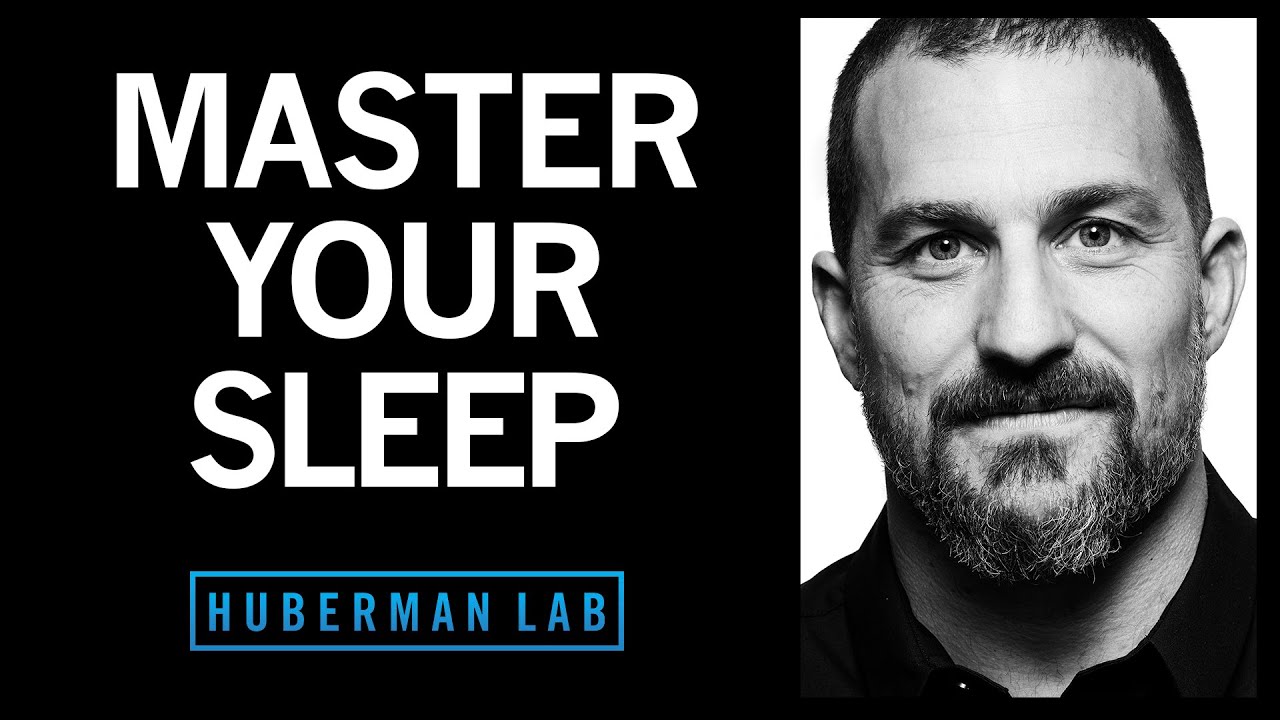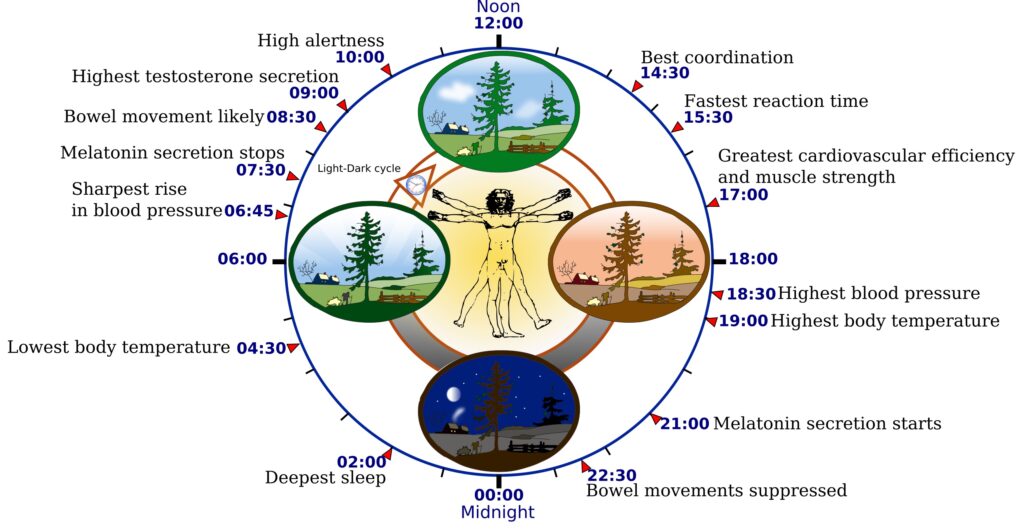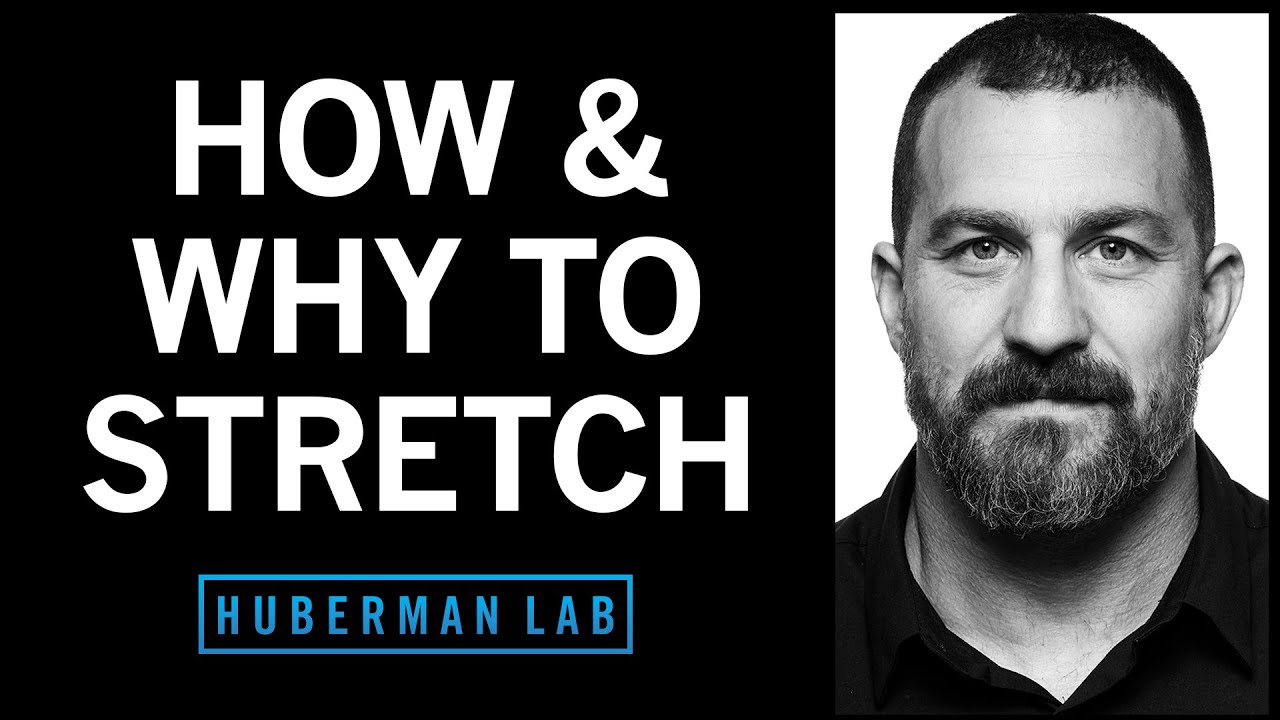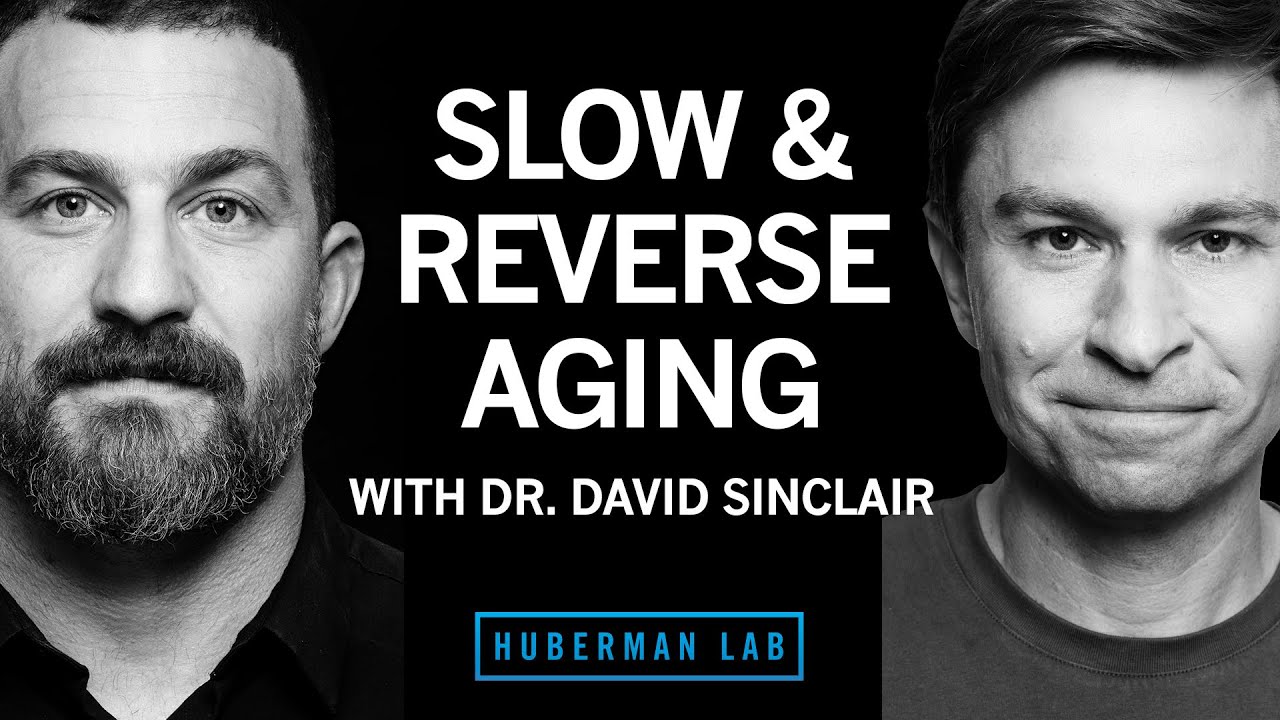- The important role sleep plays in optimizing our health.
- Caffeine and its impact on getting a good night’s sleep.
- Behavioral tools for sleep health.
- The role that natural light plays in setting our circadian clocks.
- Effective ways to manage your exposure to light for a better night’s sleep.
Master Your Sleep & Be More Alert When Awake
Master Your Sleep & Be More Alert When Awake

- The importance of high-quality sleep cannot be emphasized enough. Sleep is crucial for cognitive health, mental well-being, and performance. Therefore, it is essential to prioritize the best possible sleep by maintaining a consistent sleep/wake schedule.
- Delay your caffeine intake for 90-120 minutes after waking up to avoid the afternoon crash. If you need caffeine after 4 p.m., make sure to limit it to 100mg or less. If you consume caffeine before working out in the morning, prepare for a dip in energy in the early afternoon.
- Sleep apnea can negatively impact sleep quality and overall health. There are ways to improve it, such as taping the mouth shut while sleeping or practicing nasal breathing during exercise.
- Establishing a consistent routine for your body's internal clock is crucial for good sleep and wakefulness. Do 15-20 minutes of light exercise and eat a healthy breakfast, even if you're tired. Prioritizing these habits ensures you're energized and prepared for the day ahead.
- It is recommended to avoid exposure to overhead fluorescent lighting between 10 p.m. and 4 a.m. due to its suppressive effect on melatonin production. This can result in difficulty falling and staying asleep. Soft lamps and dim screens are a better alternative while also being mindful of avoiding eye strain.
- To enhance your sleep, limit exposure to artificial blue light. Spend two to ten minutes daily outdoors to get natural sunlight. Avoid using devices that emit blue light before bedtime, and adjust device settings to help reduce your exposure to blue light.
Why Is Sleep So Important For Our Health?
Dr. Huberman makes it crystal clear that adequate sleep is essential to maintaining optimal health and well-being at every stage of life. When we fall asleep, our bodies engage in a complex and critical process that supports:
- Brain function
- Physical fitness, and
- Growth and development in children and adolescents.
The ramifications of a consistent lack of quality sleep can be severe, leading to the onset of chronic health conditions and a decline in cognitive function and social interactions. It’s imperative to understand that sleep holds significant sway over numerous bodily systems, including the heart and circulatory system, metabolism, respiratory system, and immune system.
When we fail to obtain adequate sleep, we increase our risk of developing an array of health problems, such as:
- Heart disease and stroke
- High blood pressure and obesity
- Hormonal imbalances and metabolic syndrome
- Breathing problems and a
- Weakened immune system
In addition, sleep plays a pivotal role in learning and memory formation, making it an indispensable component of a healthy and productive lifestyle.
Caffeine; Friend Or Foe?
Dr. Huberman recommends waiting at least 90 minutes after waking up before having coffee or tea to avoid afternoon exhaustion. Moreover, abstaining from consuming any caffeine after 4 p.m. is essential, as it can disrupt your ability to fall asleep at night.
In the event that you must have caffeine later in the day, it is best to restrict your intake to no more than 100mg. It is also worth mentioning that if you drink coffee or tea before exercising in the morning, you may feel lethargic later in the day. Therefore, it would be wise to plan your daily routine accordingly.
Caffeine blocks the brain signals that cause sleepiness, making you feel alert. However, finding the right amount for you requires trial and error. Consuming caffeine in moderation is important as it can affect your sleep quality despite some health benefits.
Behavioral Tools For Better Sleep
Dr. Huberman has provided several tools and behavioral habits that you can implement to combat a busy schedule. Do not despair. Here is a list of easy-to-implement tips and actionable advice to help you regain control of your sleep
Sleep App
If you wake during the night and find it hard to fall back asleep, Dr. Huberman recommends using the Reveri app’s specialized protocol. To ensure maximum effectiveness, it’s important to remember to dim your phone screen before using the app.
Eye Masks
To achieve restful sleep, selecting the right eye mask that is not too tight and can block out light is important. Additionally, the ambient temperature should be cool enough to promote restful sleep without causing discomfort.
Ear Plugs
Ear plugs can help achieve a peaceful, uninterrupted sleep by blocking out external sound. However, they may not work for everyone, particularly those sensitive to bodily noises like your heartbeat.
Sleep Apnea
To alleviate apnea, try nose breathing. Use medical tape to keep your mouth closed while sleeping and practice low-intensity cardio exercises, breathing through your nose. This trains your body to rely on nose breathing, improving sleep quality.
Irregular Waking Hours and Shift Work
It is recommended to wait 90-120 minutes after waking up before consuming caffeine to improve sleep quality, especially if you stayed up late the night before. Maintaining consistency in your shiftwork schedule for at least two weeks can also improve overall health and sleep.
Unforeseen Circumstances
To stay awake during your usual sleep cycle, avoid blue light exposure, as it suppresses melatonin production and makes it harder to fall asleep. If waking to feed a crying baby, use red light as it has little to no effect on melatonin levels.
Natural Light And Our Circadian Clocks
The natural cycle of light and darkness caused by the sun significantly impacts the body’s internal clock, which regulates our sleep and wake cycles. This clock is highly responsive to both light and darkness and is particularly sensitive to light during the hours leading up to bedtime, throughout the night, and upon waking up.
Dr. Huberman recommends increasing exposure to bright light during the day and ensuring a dark bedroom at night for better alertness and restful sleep. To improve our ability to fall asleep, avoiding bright light exposure for at least two hours before bedtime is crucial, and adjusting the lighting in our sleeping environment to promote a relaxed state.
To combat tiredness in the evening, it’s crucial to find a well-lit area. If you’re experiencing sleep deprivation or fatigue, Dr. Huberman strongly recommends going to bed earlier. To help you return to sleep if you wake up in the middle of the night or too early in the morning, dimming the lights can also be highly effective.
Finally, bright light exposure 30-60 minutes after waking can help us fall asleep more easily, while exposure after waking up can increase our alertness levels.

Source: https://en.wikipedia.org/wiki/Circadian_rhythm#/media/File:Biologg
Managing the Good And Bad Light
Our body’s circadian rhythm, which regulates our sleep and wake cycles, is governed by the body clock. Blue light emitted by the sun plays a crucial role in keeping our body clock in sync. However, excessive exposure to blue light, like that comes from electronic devices, can have adverse effects on our sleep quality, leading to daytime fatigue.
The reason behind this is the disruption of melatonin production, a hormone responsible for inducing sleep. Inadequate melatonin secretion can result in difficulty falling asleep at night. Persistent disruption of our body clock can lead to various problems, including metabolic and mood disorders like depression.
Early exposure to natural sunlight is highly beneficial for regulating the release of cortisol and improving overall health. In contrast, artificial light is less effective in this regard. Specifically, sunlight during sunrise and sunset can effectively establish a healthy body clock and help safeguard against the adverse effects of light exposure later in the day.
Additionally, Dr. Huberman notes that every cell in the body requires light information. Screens and artificial light sources can have detrimental effects on health, such as impeding the release of melatonin at night. Therefore, taking two to ten minutes daily to bask in the sunlight can significantly boost your mental and physical well-being.



